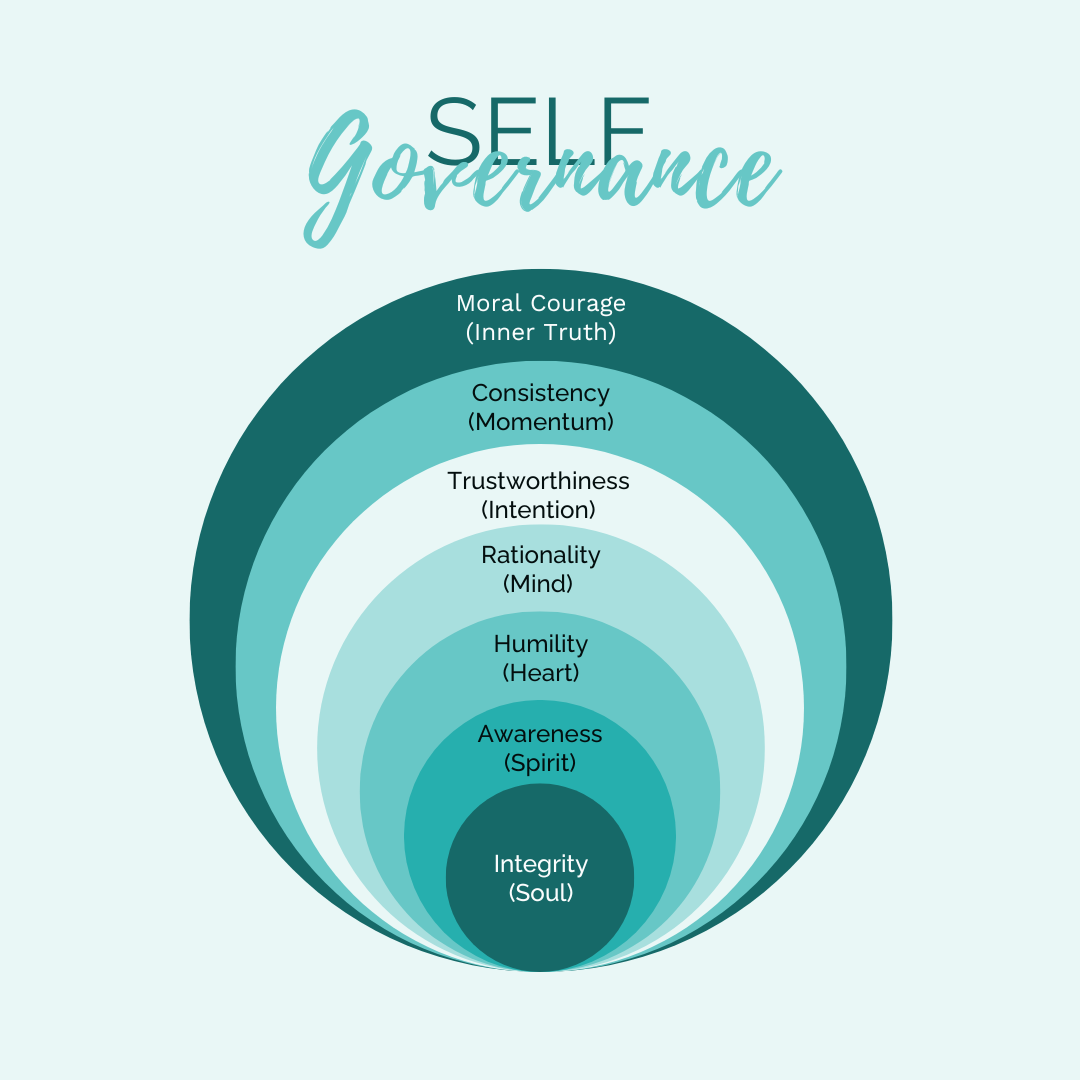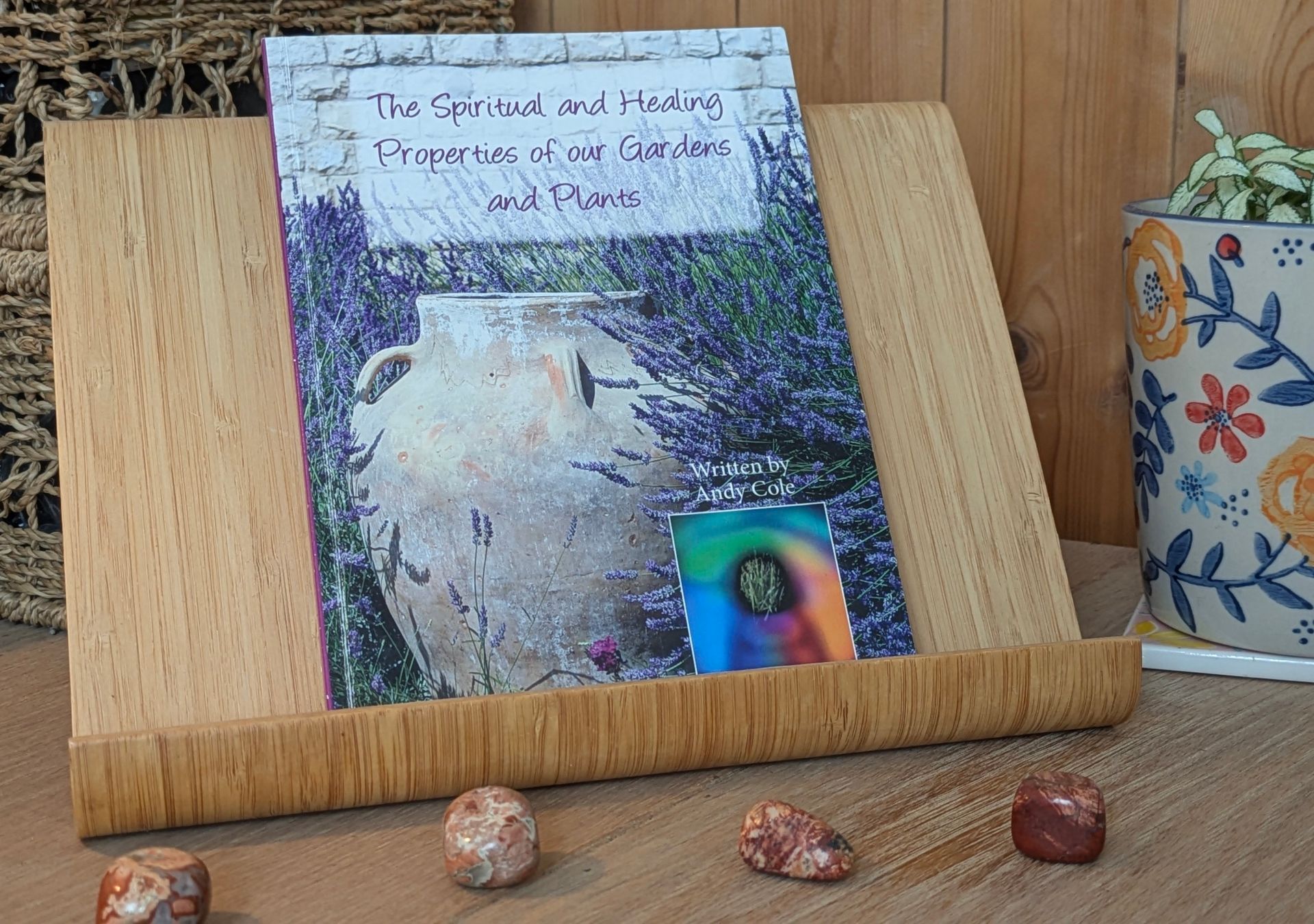There have always been leaders with a style that can be measured on a scale from transcendent (positive) to authoritative (negative) with every combination in between.
The problem is that hierarchical, top-down
'authoritative leadership' has become the norm in public, private and non-profit sectors, with few enterprises able to invest in
'transcendent leadership' and remain competitive.
Transcendent Leadership
At the top end of the scale,
'Transcendent Leadership' requires
'using self-compassion and compassion for others to unlock the doorway to wisdom, interconnectedness and collaboration.' This sounds very noble and is considered to be the optimum style of leadership whereby
'everyone feels valued, respected and appreciated, and everyone feels engaged and willing to work together authentically and effectively.'
The problem is that even if this were entirely possible and sustainable, it goes against the requirement for
'we the people' to self-govern ourselves according to Natural or
Community Law. It is a misnomer when we consider that nobody can assume authority over anyone else without their prior understanding and agreed consent. When people are not given the opportunity to consent or respond to a particular style of leadership foisted upon them, leadership in itself becomes unlawful.
Authoritarian Leadership
To be clear, 'authoritarian leadership' is demonstrated by
'a management style in which an individual has total decision-making power and absolute control over their subordinates.' I think we can all agree that in any situation, none of us would willingly agree to be treated in this way.
The fact that many employees, carers and other providers
expect to be treated this way, and would not dream of saying anything in fear of losing their employment, is something we will need to remedy.
Instigators, Guardians and Facilitators
With this in mind, we must extend our gratitude and thanks to CABI Founding Facilitators and Special Advisors, Community Health Initiative (CHI) Members and Licentiates, and Emissaries who have committed to the important roles of
'guardianship', facilitation' and 'natural healing'
as members of CABI and the Assemblies of the World parallel network.
In every single case and despite being roles that require the wisdom, experience and skills of ethical leadership, each one of our pioneers or
'instigators' have stressed the fact that under no circumstances do they want to be considered, titled or rewarded as
'leaders.'
Rather, they see themselves as members of the community who provide invaluable knowledge and expertise to bring people together, build communication networks and establish equitable ways of doing things so that we can live in harmony as individuals and community members for the highest good of all.
These roles are shared on a rotational basis so that new pioneers, instigators and facilitators can take over or step in as we grow. Our thanks go out to all our members who are actively working behind the scenes and making a contribution - we appreciate everything you do.
Valued Contributions
Many of our members are very generously volunteering their time, skills and energy to run groups on social media, write articles and book reviews for the CABI blog, design flyers, provide guidance and information on specific subjects and actively work in the community talking to people and bringing new members into the fold.
Other members are helping simply by spreading the word, forwarding information, talking to people on the phone, sending emails, sharing CABI content or working on preparations to set up their own Community Assemblies.
Those of our members who have full time commitments and are unable to make a contribution as mentioned above, are donating a
monthly subscription instead. These members are very much valued as an integral part of our team because with regular donations we can continue to develop and deliver services in support of all our members.
We hope that more of our members will make a contribution in this way so that we can continue to grow and move things forward.
Individual Contributions
Something we can all do as we work towards building
our new world, is to learn how to govern ourselves as sovereigns within a cooperative network of fellow sovereign beings. We need to find the best ways to become independent, self-governing and accountable community members which means developing leadership skills for ourselves.
When we consider Mark Passio's definition of freedom cited in
The Science of Natural Law recently, taking responsibility for ourselves is the shortest and most direct route towards wellbeing, happiness and freedom.
As a society, the more we become moral collectively, the more we become collectively free. As a society, the less we become moral collectively, the more we become collectively enslaved.
Having studied the principles and attributes of ethical leadership, I have developed a model for self-governance that might be helpful in pointing us in the right direction and to provide a standard of being that we can all aspire to.
INTEGRITY (Soul)
Tuning into our moral compass, source of intuition and gut instincts to know the difference between right and wrong so that we can live by the four tenets of
Natural Law which are to: 'do no harm, keep the peace, commit no fraud and cause no loss.'
AWARENESS (Spirit)
Being concerned about things of importance and doing our best to bring the truth to light with kindness and healing energy. The higher our spiritual frequency, the more closely we
resonate with truth and the reality of the here and now.
HUMILITY (Heart)
Showing empathy for all human and sentient beings and our beautiful planet Earth without bias. Listening to other points of view, bringing everything back to love and using our
heart intelligence.
RATIONALITY (Mind)
Taking a reasoned and calm approach towards challenges and problems so that we can find beneficial solutions and make decisions without emotional or other influence as a process of consensus.
TRUSTWORTHINESS (Intention)
Earning and building trust by being honest, kind and dependable, and being careful to 'only make promises we know we can keep and to honour our word.'
CONSISTENCY (Momentum)
Being organised in ways that enable us to get things done, take care of ourselves, make a valued contribution, and spend time doing the things we love.
MORAL COURAGE (Inner Truth)
Aligning our body, mind, spirit, soul and whole being in truth and love to give us the confidence to find our voice, stand in our own truth and live a fulfilling life.
Final note
It is important to remember that none of us are perfect, in fact, it is often our imperfections that endear us to each other the most. As long as our hearts and intentions are in the right place and we commit to doing the right thing for ourselves, each other and the beautiful world in which we live - the rest is added bonus!
Sue Cartwright AInstAM
Community Assembly of the British Isles
Editor














